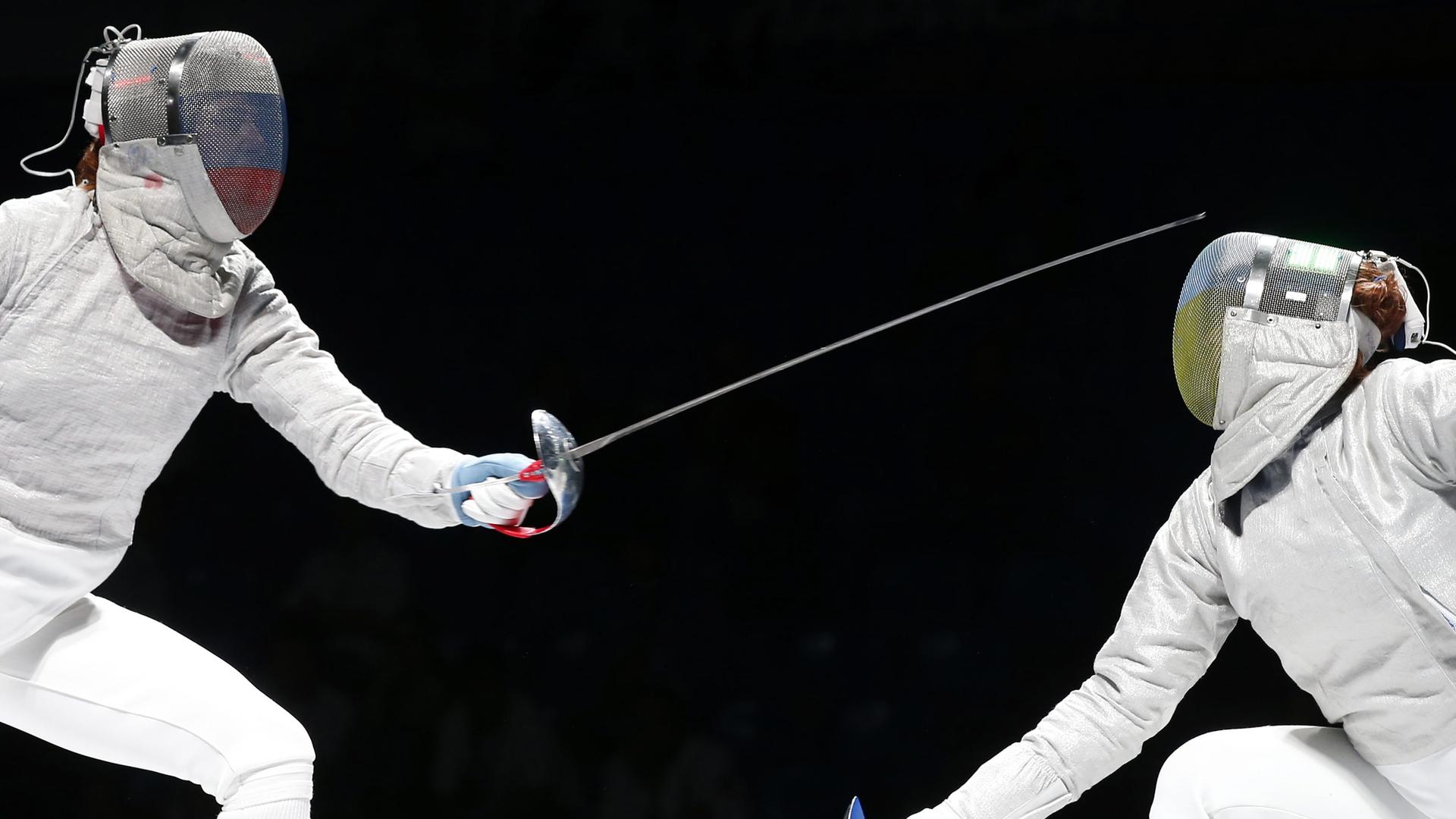Despite the Russian war of aggression against Ukraine, the World Fencing Federation FIE decided by a large majority on March 10, 2023 that Russian and Belarusian athletes may again take part in international fencing competitions in the future.
The World Fencing Federation decided by a good two-thirds majority that Russian and Belarusian fencers are allowed to take part in competitions again – as neutral athletes, i.e. without national symbols and anthem. The decision adopted at the Extraordinary FIE Congress affects the individual and team competitions and will apply from April, albeit “subject to any recommendations or future decisions by the International Olympic Committee”.
In essence, the World Fencing Federation’s decision has been taken in line with current IOC stance. The IOC said in January that no athlete should be excluded just because of his passport. IOC President Thomas Bach, himself a fencing Olympic champion in 1976, had emphasized that an exclusion based on passport or place of birth would violate the ban on discrimination.
Provided they clearly commit themselves to the Olympic Charter and do not actively support the war in Ukraine, the IOC aims to see athletes from both countries return to the international sporting stage under a neutral flag. What exactly “active support” means and who checks it is still not clear.
For the Russian athletes, this decision comes just in time, because the qualifying competitions for the Summer Olympics in Paris next year will start in April.
The Fencing Federation of Ukraine has announced that it will boycott all competitions involving athletes from Russia and Belarus. It was shameful and outrageous that Russia would be allowed back, Ukrainian sports minister Vadym Gutzeit told the FAZ. How can Ukrainian athletes be expected to shake hands with Russian athletes while Ukraine is at war?
And so there is now what IOC President Thomas Bach actually always wanted to prevent: namely a boycott in an Olympic sport.
The President of the German Fencing Association, Claudia Bokel, took part in the vote in the world association. According to Dlf and other media research, she apparently voted for Russian individual athletes to be admitted again.
Bokel did not respond to Dlf’s request as to how she voted. She points out that it was a secret election. If she actually voted for readmission, then the German Fechter-Bund would have voted against the federal government’s line. The Federal Ministry of the Interior has made it very clear that it is in favor of excluding Russia and Belarus.
In a statement available to Dlf, the BMI states that the decision of the International Fencing Federation (FIE) to resume Russian and Belarusian athletes in international competitions is the wrong way to go.
Nevertheless, the BMI emphasizes that German athletes should not be disadvantaged with regard to qualification for the Olympic Games. They should not “be the victims of decisions by international sports federations.” Actually, competitions with Russian or Belarusian participation should not receive any funding from the Federal Ministry of the Interior. This regulation applies to all Olympic and non-Olympic sports. Without this tax money, many German athletes would not be able to compete and qualify for the Olympics.
According to the BMI, the individual case regulations for exceptions already applied before the decision of the International Fencing Federation (FIE). In concrete terms, this means: “In this sense, we will allow exceptions to the decree of March 2022, so that the participation of German athletes in international competitions can also be promoted if Russia and Belarus participate.”
At the same time, however, the promotion of sport is the only concrete lever that politics has to exert a direct influence on the associations, which, however, refer to their autonomy. This means that the Ministry of the Interior is in a difficult position because it has to decide: will it stick to its goal of keeping Russia out of world sport, or will German athletes be supported? This question will probably soon be asked in other sports as well.
The US FA said it was “disappointed, frustrated and concerned – if not overly surprised”. But worldwide there is nowhere near the great resistance that is the case in Germany, for example. The IOC also refers to this.
A group of more than 100 African athletes’ representatives, for example, has supported readmission because athletes should not pay the price for conflicts between states. Participants in the Athletes’ Forum of the Asian Olympic Council (OCA) have also spoken out against “any form of discrimination based on nationality, religion or ethnicity,” the IOC says.
Sources: Maximilian Rieger, Marina Schweizer, dpa, Olivia Gerstenberger
